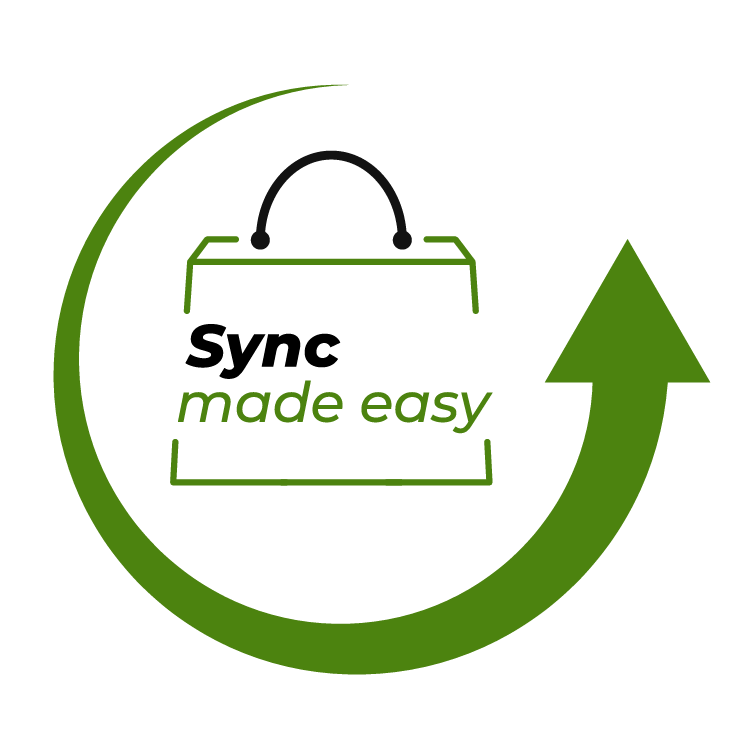Benefits Of Using Ecommerce Integration Platform
Any company trying to optimize their online operations must have an e-commerce integration platform. It has many advantages that can boost productivity, boost income, and give clients a better shopping experience.
1. Streamlined Operations: Simplifying operations is one of the main advantages of an e-commerce integration platform. It removes the need for manual data entry and updates by integrating all of your e-commerce apps and platforms. This guarantees a more seamless and effective process by saving time and lowering the possibility of mistakes.
2. Better Data Accuracy: Across all platforms, an e-commerce integration platform guarantees that all of your data is correct and current. This is essential for managing sales, inventory, and client data. Making better decisions and avoiding errors like stockouts and overselling are made easier with accurate data.
3. Improved Inventory Management: You can effortlessly manage your inventory across all sales channels by using an e-commerce integration platform. This implies that you can prevent stockouts, fulfill orders from any location, and monitor stock levels. Businesses that sell on several platforms will particularly benefit from this.
4. Higher Sales: Smooth multichannel selling made possible by an e-commerce integration platform may result in higher sales. You may increase your reach and income by connecting with more clients via many channels. Furthermore, services like real-time inventory updates and automatic order fulfillment can speed up the purchasing experience and increase conversions.
5. Improved Customer Experience: In the cutthroat world of e-commerce today, giving customers a smooth and customized experience is crucial. Managing client data and offering a more uniform experience across all touchpoints are made simpler with an e-commerce integration platform. Increased consumer pleasure may result from this, which may eventually improve loyalty and retention.
6. Cost Savings: An ecommerce integration platform can reduce labor expenses by automating procedures and optimizing operations. Additionally, it lowers the possibility of mistakes, which can cost money and effort. Furthermore, by preventing stockouts, services like real-time inventory updates can lower the chance of lost sales.
Important Factors To Consider While Purchasing Ecommerce Integration Platform?
There are a number of important considerations to make before buying an e-commerce integration platform in order to make an informed choice. The success of your online business can be significantly impacted by your choice of Ecommerce Integration Platform, regardless of how big or little your company is. When buying an e-commerce integration platform, you should consider the following crucial factors:
1. Integration Capabilities: Integrating your online store with different applications, including shipping, accounting, and inventory management systems, is the main purpose of an e-commerce integration platform. To optimize your business processes, it is crucial to take into account the platform's integration capabilities and make sure it can interface with all required systems.
2. Scalability: As your company develops, you could need to increase your product line, introduce new channels, or add new applications. Selecting a scalable Ecommerce Integration Platform that can accommodate your future expansion and development is so essential.
3. User-Friendly Interface: The platform ought to provide an intuitive user interface that is simple to use and comprehend. Because not all users are tech-savvy and a complex interface might cause mistakes and delays in the integration process, this is crucial.
4. Customization: Since every company has different demands, the Ecommerce Integration Platform should provide the freedom to alter data mappings and workflows to suit your requirements. This will improve the platform's performance and enable you to customize it for your company.
5. Customer Help: Having dependable customer help from the platform provider is crucial in the event of any problems or questions. They should be readily available and capable of offering prompt fixes to guarantee that your company's activities are unaffected.
6. Security: An Ecommerce Integration Platform must be secure and adhere to all relevant security requirements since it will be managing sensitive data, including financial transactions and consumer information.
7. Ease Of Implementation: It's important to account for the time and work needed to put the Ecommerce Integration Platform into place. To prevent interruptions to your company's activities, pick a platform that provides a rapid and easy setup process.
8. Cost: Finally, take into account the Ecommerce Integration Platform's price and contrast it with your spending plan. In order to select the best choice for your company, it is crucial to take into account the platform's features, support, and scalability, even though a lower price may be alluring.
What Are The Key Features To Look For In Ecommerce Integration Platform?
Every buyer should search for a few essential aspects when evaluating an e-commerce integration platform. The platform's overall functionality and efficacy in linking your online store with other systems and applications will be determined by these features.
The following are the main attributes to think about:
1. Seamless Integration Capabilities: Integrating your online store with other systems, like your ERP, CRM, or fulfillment software, is the main goal of an e-commerce integration platform. Seek out a platform with strong integration features, such as the capacity to facilitate batch and real-time connections and the adaptability to connect to several systems at once.
2. Scalability: Your integration requirements will rise in tandem with your company's expansion. Select a platform that will grow with your company so you can add new apps and systems without having to stop running your business. In the long term, this will save you money and time.
3. Customizability: The integration requirements of every organization are different. High levels of customization should be provided by a quality e-commerce integration platform so that you can modify the integrations to meet your unique needs. This will guarantee that the platform offers a smooth user experience and satisfies your business needs.
4. Data Mapping And Transformation: Mapping and transforming data between systems is one of the difficulties of system integration. To save time and effort while maintaining your integrations, look for a platform that offers sophisticated data mapping and transformation features, such as the ability to change data in real-time.
5. Data Security: When connecting various systems, it is crucial to maintain the security of your data. To guarantee the protection and privacy of your data, the platform you select should have strong security features like access control, authentication, and encryption.
6. Error Handling And Monitoring: Integrations might involve errors, just like any other technology. Choose a platform with strong error-handling and monitoring capabilities so you can keep an eye on and promptly address any problems that may come up.
7. User-Friendly Interface: The seamless functioning of your integrations depends on a user-friendly interface. Choose a platform that is simple to use and navigate, especially for non-technical individuals, with an intuitive user interface. To sum up, these crucial characteristics must be taken into account when selecting an e-commerce integration platform in order to make sure the platform satisfies your company's requirements, offers a smooth integration experience, and fosters your expansion and success.
Why Do Businesses Need Ecommerce Integration Platform?
A vital tool for companies trying to grow and optimize their online operations is an e-commerce integration platform. It acts as the main link between all the various facets of an online store, such as fulfillment, inventory control, sales channels, and customer information. However, why precisely do companies want an integrated platform? Let's examine the main justifications below:
1. Effective Management Of Various Sales Channels: As e-commerce keeps expanding, companies are frequently selling through a variety of channels, including social media, their own website, and online marketplaces like Amazon and eBay. Businesses may avoid the danger of overselling or manually updating each platform independently by using an ecommerce integration platform to manage and sync inventory, orders, and customer information across all of these channels in real-time.
2. Smooth Order Fulfillment: Meeting client expectations and guaranteeing repeat business depend on order fulfillment being streamlined. Automating order fulfillment by synchronizing orders from all channels and automating tracking and shipping information is a function of e-commerce integration platforms. This speeds up the fulfillment process, decreases errors, and does away with the need for human data entry.
3. Accurate Inventory Management: An essential component of any e-commerce enterprise is inventory management. Businesses may precisely monitor inventory levels in real-time across all sales channels with an integrated platform. By doing this, companies can steer clear of overselling, stockouts, and backorders all of which can have a detrimental effect on sales and consumer satisfaction.
4. Data and Analytics Consolidation: By combining data from several sales channels, an e-commerce integration platform can give companies insightful information about how they are operating. This covers inventory levels, consumer behavior, and sales success, assisting companies in making data-driven choices to enhance their overall approach.
5. Time And Cost Savings: An ecommerce integration platform helps organizations save time and money by automating processes, decreasing human data entry, and combining data. This reduces expenses and boosts income by freeing up resources that can be used for other business functions like product development and marketing. All things considered, companies wishing to increase productivity, manage their online operations, and support expansion must have an ecommerce integration platform. A consolidated platform that smoothly connects all business aspects is essential for success in the ever-changing e-commerce industry.
Conclusion
In summary, the success of your online business depends on your choice of ecommerce integration platform. It makes it possible for your e-commerce site and other apps to link seamlessly, which makes management easier and more effective. Compatibility, scalability, cost, and customer service are all essential considerations when assessing possible platforms.
Spend some time carefully examining and contrasting various possibilities to determine which one best suits your company's requirements. Multiple channels and marketplace support, configurable workflows, and real-time data syncing are some essential characteristics to search for in an e-commerce integration platform. These features will give clients a flawless purchasing experience while also ensuring that your business operates effectively and efficiently.
Don't forget to take into account the platform provider's general reputation and experience. Seek out reputable, well-established businesses that have a proven track record of success in the sector. You may increase client satisfaction, expedite company procedures, and eventually propel your online organization's growth and success by investing in a dependable and intuitive ecommerce integration platform. To get the most out of your e-commerce integration platform, keep these factors in mind and make informed decisions.





















